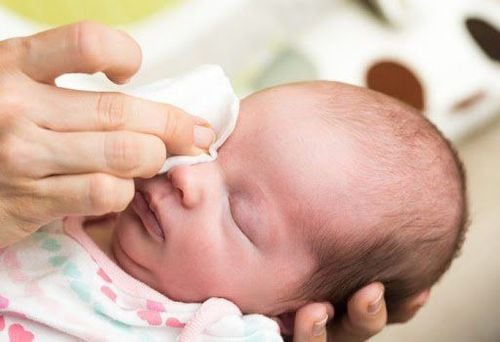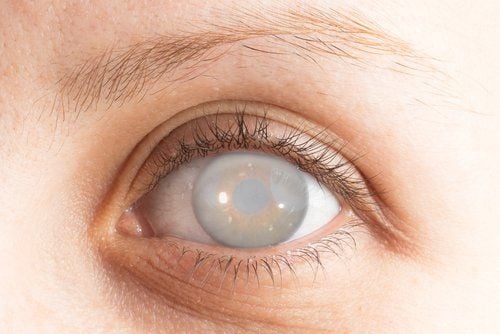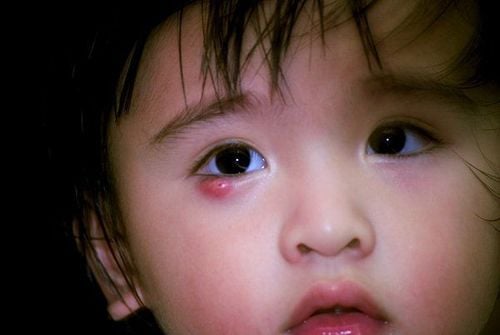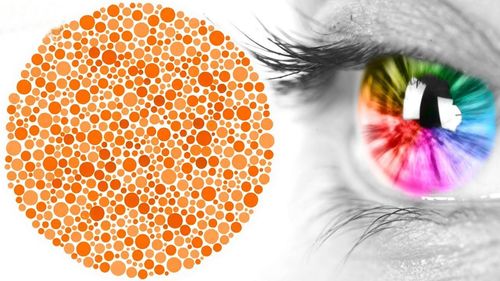This is an automatically translated article.
The American Optometric Association (AOA) encourages parents to schedule routine eye exams for their newborns. Eye exams in babies between six and 12 months old can identify healthy or abnormal development of vision. Early detection of eye diseases is the best way to ensure your child has healthy vision.
1. Why do babies need an eye exam?
Even more experienced parents have a hard time judging how well their own vision is. Because babies are so young, babies don't socialize much unless they're hungry and tired. A trained optometrist or ophthalmologist can assess your child's vision while your child doesn't say a word. Babies and young children need eye exams because major problems that may go undetected can be addressed before they turn into untreatable conditions. A child's nervous system is very complex and is still developing until age 7-8. Problems that can be addressed before the age of 7 or 8 can save a child's life in terms of vision, social or employment problems.
While the American Optometric Association (AOA) recommends that babies have their eyes checked at six months of age, your pediatrician will help you determine the right time for your baby's first visit. friend. We recommend having a follow-up eye exam when your child is three years old and then again when the child is five or six years old, usually around the time formal school starts

Trẻ sơ sinh và trẻ nhỏ cần khám mắt
2. How will the child's eye exam take place?
The person who directly examines the child's eyes is the pediatrician. During the exam, the doctor will examine the child for problems, as well as check the child's back, ears, breathing, and heart, to make sure that all is well.
If the doctor finds a health problem with your child's eyes, such as a minor infection, he or she will begin treatment. If the problem is more serious, your doctor will refer you to an eye specialist or ophthalmologist. In addition, your child should be referred to another specialist if he or she notices any other signs of vision problems or if your child has a family history of childhood eye problems.
At each well-child visit, the doctor should check for signs of congenital eye disease and other problems. The doctor will also check the structure and alignment of your baby's eyes and the correct movement of the eyes. If your doctor does the following, you can rest assured that he or she is doing a good exam on your baby:
The doctor asks you about your family's visual history (or your baby's birth history) if your child is adopted or someone else is surrogacy). Use a pen light to check the outside of your baby's eyes, including the eyelids and eyeballs, for discharge and signs of infection, allergies, disease, or blocked tear ducts. The doctor will check to see if the pupils in both eyes are the same size, round, and responsive to light. In addition, the doctor will look for drooping eyelashes during the exam and check the position of the eyes and eyelids. The doctor checks your baby's eye movements by watching your baby's ability to fixate on an object (like a toy) and watching your baby's eyes as the doctor moves the object to different positions. Your doctor will perform this exam with each eye and both eyes together. Your baby should be able to follow these movements by 2 or 3 months old. To test your baby's vision, the doctor will watch how your baby follows an object with one eye and then the other (covering one eye at a time). If your baby follows an object with one eye but does not follow it with the other eye, it is a sign that his vision is worse than when one eye is unresponsive.

khám mắt cho trẻ giúp phát hiện các dấu hiệu của bệnh mắt bẩm sinh và các vấn đề khác
3. How can I make sure my child's eyes and vision are properly monitored and cared for?
Your first strategy is to make sure that your baby's eyes are thoroughly examined during routine doctor visits, as described above. If you are not satisfied, talk to your child's doctor. And if you're still not satisfied with the level of care, get a second opinion from someone you trust, whether that's another doctor, an optometrist, or an optometrist.
Between regular checkups, observe your child's developing vision at home and if you think something is wrong, get your child checked again.
When a child shows abnormal signs of health, parents can take the child to Vinmec Health system for timely examination and treatment.
As a key area of Vinmec Health System, Pediatrics Department - Vinmec International General Hospital always brings satisfaction to customers and is highly appreciated by industry experts thanks to the following advantages:
gathers a team of leading doctors and doctors in Pediatrics: including leading experts, with high professional qualifications (professors, associate professors, doctorates, masters), experienced, having worked in different hospitals. big hospitals like Bach Mai, 108.. The doctors are all well-trained, professional, have a heart - reach, understand young psychology. In addition to domestic pediatric specialists, the Department of Pediatrics also has the participation of foreign experts (Japan, Singapore, Australia, USA) who are always pioneers in applying the latest and most effective treatment regimens. . Comprehensive services: In the field of Pediatrics, Vinmec provides a series of continuous medical examination and treatment services from Newborn to Pediatric and Vaccine,... according to international standards to help parents take care of their baby's health from birth to childhood. from birth to adulthood Specialized techniques: Vinmec has successfully deployed many specialized techniques to make the treatment of difficult diseases in Pediatrics more effective: neurosurgery - skull surgery, stem cell transplantation. blood in cancer treatment. Professional care: In addition to understanding children's psychology, Vinmec also pays special attention to the children's play space, helping them to have fun and get used to the hospital's environment, cooperate in treatment, improve the efficiency of medical treatment.
Please dial HOTLINE for more information or register for an appointment HERE. Download MyVinmec app to make appointments faster and to manage your bookings easily.
Reference source: babycenter.com








![[Vinmec - Q&A with experts] Number 02: Children's health in hot season (Part 1)](/static/uploads/small_20190723_082829_863235_Banner_FB_1200x628_max_1800x1800_png_982bf67b1c.png)



